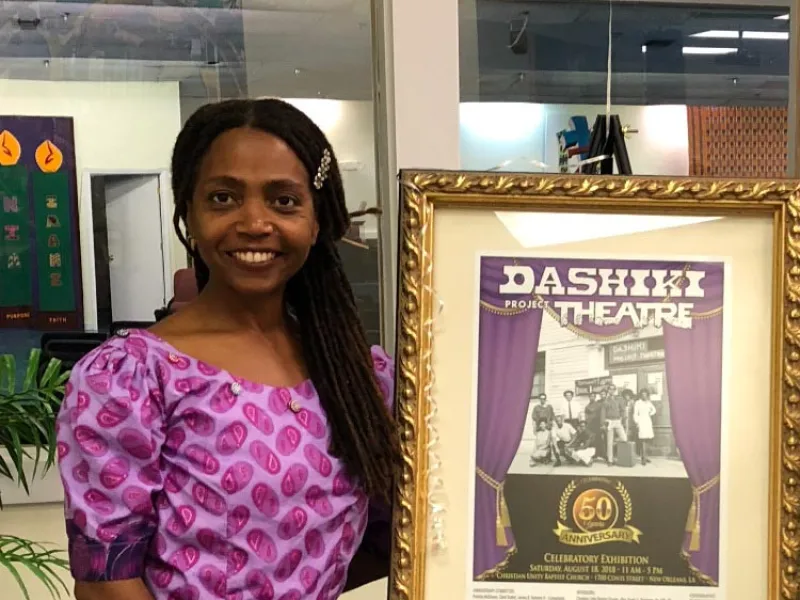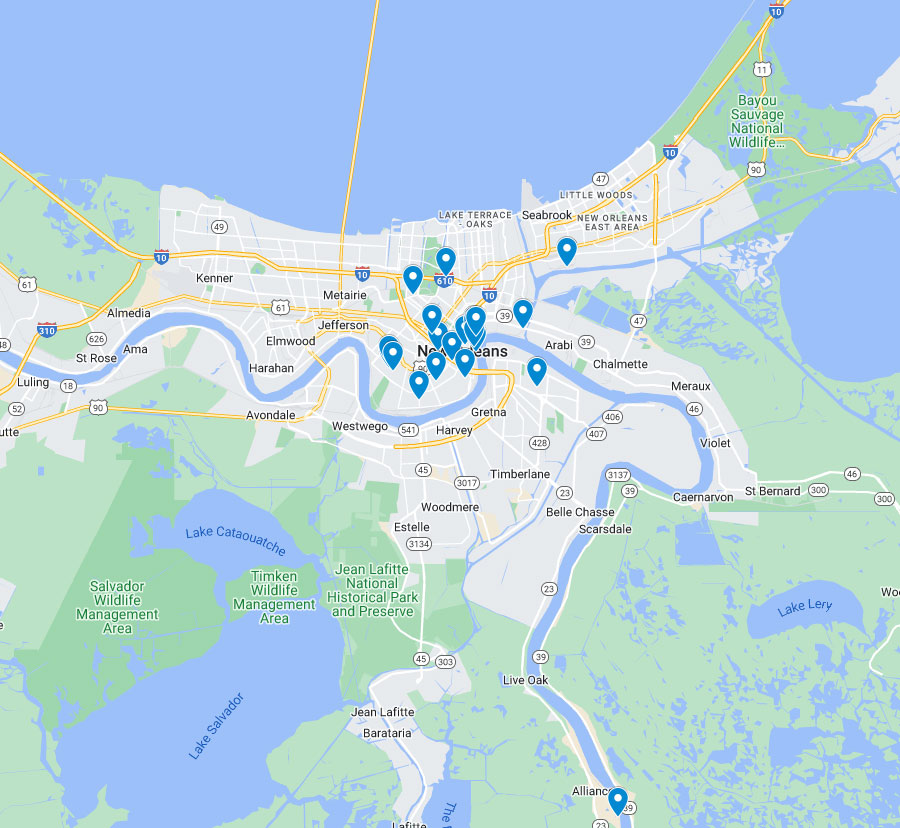
Biography
Leon A. Waters, Historian and Social Activist
Mr. Leon A. Waters is the board chairperson of the Louisiana Museum of African American History (LMAAH). He is also the manager of Hidden History Tours, LLC-a publishing, touring, and research company. He has published the book: On To New Orleans: Louisiana’s Heroic 1811 Slave Revolt, a page text documenting the story of the largest slave revolt in the United States, occurring in St. John the Baptist, St. Charles, and Orleans Parishes.
“I have been working on the interface of social classes and mass resistance in a variety of forms. This includes an examination of social history that is ‘hidden history’, social inequality, and resistance; the hidden voice of the victim, particularly the voice of the buried former enslaved, and the political economic history of wars.”
Mr. Waters lectures nationally and internationally on the Louisiana 1811 Slave Revolt, including recently, at the University of the Antilles in Martinique and upcoming in November 2018 at the Haitian Studies Association conference in Port-au-Prince, Haiti.
Monique Moss, Curator, Choreographer, Interdisciplinary Performance Artist, Educator
Monique Moss MA, MFA, MA, a native of New Orleans, is Artistic Director of Third Eye Theatre Interdisciplinary and Improvisational Performance Company and adjunct professor at Tulane University in the Department of Theatre and Dance. She holds a BA in French, MA in Latin American Studies and MFA in Interdisciplinary Dance Performance from Tulane University, and a MA in Museum Studies from Southern University at New Orleans. Her research-based work focuses on the history and cultural connections between New Orleans, Haiti, the Congo and the francophone diaspora. Moss is on the board of the Louisiana Museum of African American History (LMAAH) and a tour guide with Hidden History Tours, LLC.
Research
The project A Scientific Examination of the Accumulation of Sugar Cane Wealth and the People of African Descent Resistance to Sugar Cane Industrialists’ Savage Exploitation seeks to comprehensively examine production relations and production material forces of the sugar cane industry prior to the onset of the Civil War. Areas of focus include instruments and machinery of production, and the forced free labor of people of African descent within the eight stages of sugar cane production: 1.) cultivation, 2.) cutting, 3.) hauling, 4.) grinding, 5.) clarification, 6.) filtration, 7.) evaporation, and 8.) crystallization.
With the objective of providing an assessment beyond an illustration of the crimes committed by the sugar cane plantation slaveholders against people of African descent, the project shall reveal the numerous forms of resistance strategically employed by the enslaved to win their emancipation.


